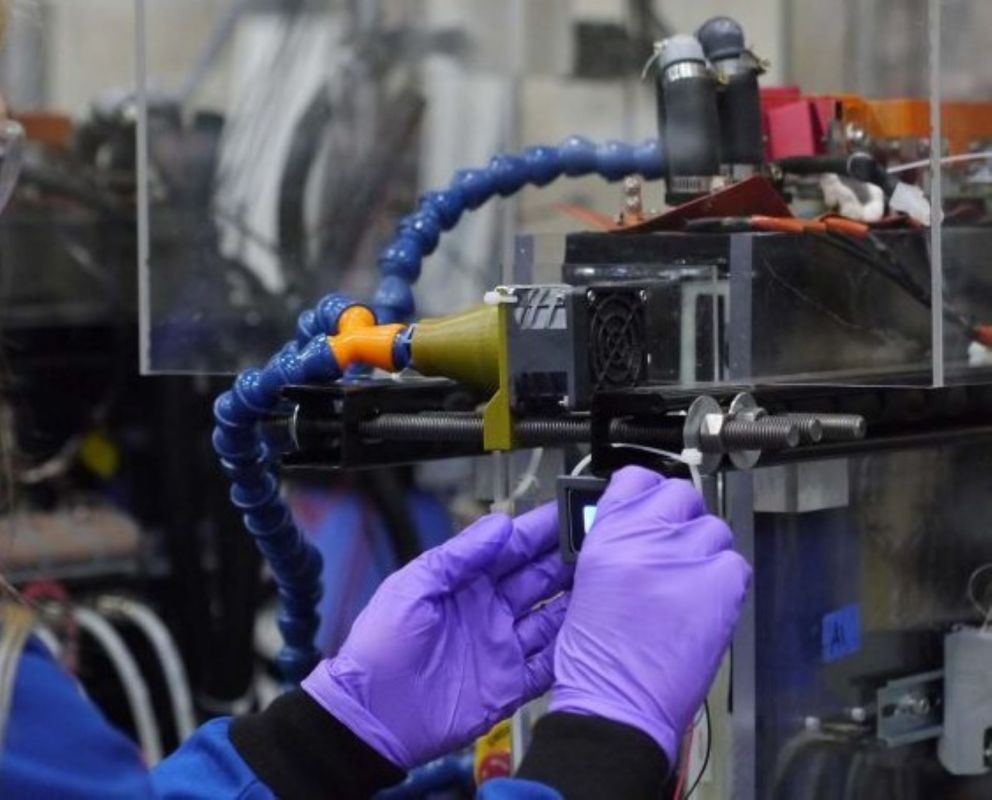Battery experts can generate a charge out of about anything these days. Form Energy is adding rust to the list.
Experts developed iron-air batteries that can use the chemistry that occurs when metal rusts to more cheaply store power. The goal is to efficiently capture intermittent renewable energy, so the cleaner power can be better stored and used to bolster the grid, especially during emergencies.
The rust tech comes with a tenth the cost of lithium-ion batteries, among a litany of other benefits, Form Energy reports.
"Iron-air is the lowest-cost rechargeable battery chemistry. It's safe, it is not flammable," Form Energy co-founder Billy Woodford said in a video clip posted on Vimeo. The company was founded in 2017.
Form Energy’s Virtual Lab Tour from Form Energy on Vimeo.
Form Energy uses a cheap form of iron used in steelmaking, which helps to create a unique "reversible rusting" process in the charge/discharge cycle. Common lithium-ion batteries, by comparison, use more expensive rare Earth metals, which involve invasive mining to gather.
Each cell includes iron and air electrodes, which allows for the chemistry that enables the batteries to store and discharge power.
Air is added when the battery discharges, and the iron is converted to rust in a remarkable process that produces energy. When charging, an electrical current helps to convert the rust back to iron, and the battery releases oxygen, according to the company's website.
At one point in the clip, a begoggled Woodford describes how he and his team developed the breakthrough. He is holding a container of spherical iron balls. The porous material absorbs the electrolyte in the battery (the solution where the charge/discharge cycle happens), helping "ions [to] get around."
"We were the first to realize [direct reduced iron] could be used in a battery," he said in the clip.
The result is an improved way to store renewable energy for multiple days, per the website. Lithium tech isn't as good at storing power for longer stretches, according to a report from New Atlas. Form Energy claims the iron-air packs have a 100-plus-hour duration for saving power from wind, waves, and the sun.
The power pack modules are about the size of a side-by-side washer and dryer. For storage, hundreds of modular power blocks using this technology would be grouped together. The packs are safe and easily recyclable, according to the company.
Form Energy has four U.S. locations — three across the Eastern Seaboard and one in California. The advanced manufacturing team is located in Pittsburgh. That's where the iron-air battery manufacturing process is being perfected for mass production. Form Energy hopes to have a West Virginia plant finished this year and iron-air systems coming off the assembly line in 2024.
One of the first companies to buy in is Xcel Energy in Minnesota. Xcel is transitioning its coal-fired plants to renewable sources, New Atlas reports. The pilot project is expected to be operational by 2025.
The tech has "the potential to help us better harness the renewable energy we generate while ensuring the grid remains reliable for our customers," Bria Shea, a senior vice president at Xcel, said in a press release cited by the New Atlas report. "We look forward to bringing this system online."
Join our free newsletter for weekly updates on the coolest innovations improving our lives and saving our planet.









